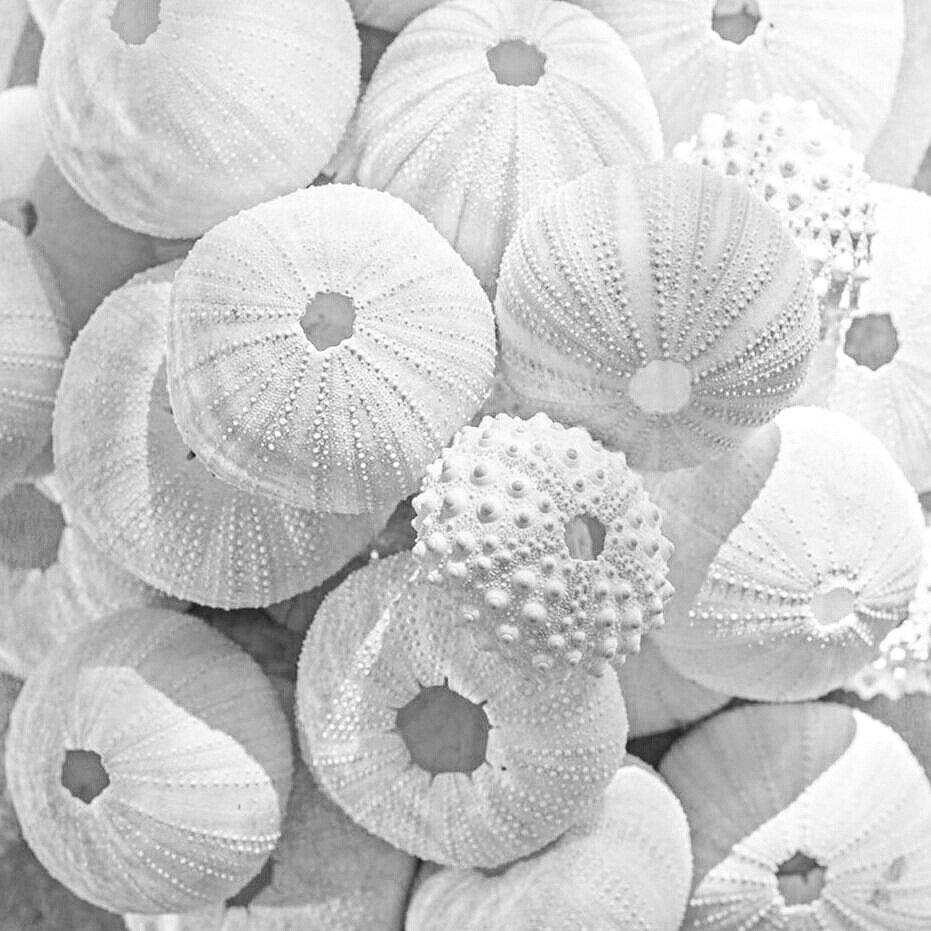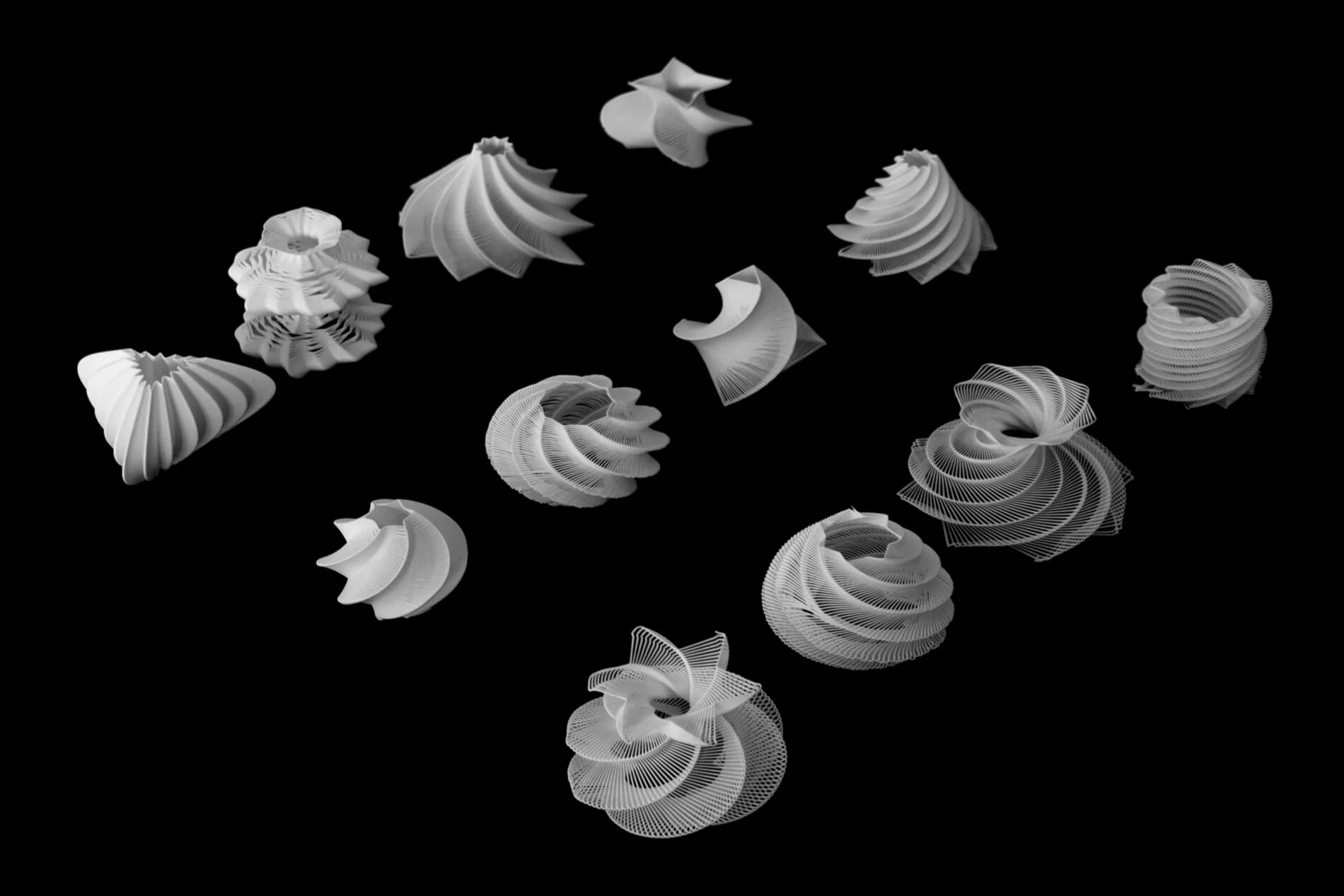Top view of final 3D printed volumes
COILED SHELLS
Conceptual Design / C# Programming / Photography (2019)
Coiled Shells is a system for generating custom G-code for a 3D printer, created with designers Erin Hunt and Katarina Richter-Lunn as part of SCI 6338: Introduction to Computational Design. This project's goal was to create system that produced a a single spiralized curve in Grasshopper, that we could then export as custom G-code. This allowed us to print complex hollow shapes with overhang while eliminating the need for infill. By using rotation and profile as our main parameters, we could test the how slope and span of our designs would affect bridging and layer deposition of the 3D print.
Seashells and diatoms served as inspiration for this project
Process
We took formal inspiration from the radial symmetry and diverse shapes produced by diatoms, sea urchins, and other small sea creatures. To replicate their forms, we generated a single continuous curve with stepwise z-motion within Grasshopper, and then created series of custom C# components to convert the curve into G-code, machine code a 3D printer could understand. This required some trial and error, as we adjusted our spiralization and segmentation parameters in C#, the temperature and speed of the 3D printer, and the rotation and height paramters of the volumes.
Rendered outlines and 3D printed results during experimentation process
Final Grasshopper definition consisting of two main components: curve definition and G-code definition
Final Pieces
The final G-code generation system allows us to print hollow volumes while eliminating the need for infill, allowing us to experiment with overhang and overlap to print delicate and springy symmetrical forms. We developed a series of 12 final prints, each with a curve profile (spiral, sine, or power), and degree of rotation (from 0 to 360 degrees). Below are an example of a single form (top and perspective) along with a sped up video of the printing process, and the rendered outlines and 3D prints of our final set.
Perspective and top view of a final 3D print, along with video of it printing
Top and side views of final designs’ rendered outlines
Perspective view of final 3D printed volumes










